Science
China Conquers Space: First an Asteroid, Then a Distant Comet
15 July 2025
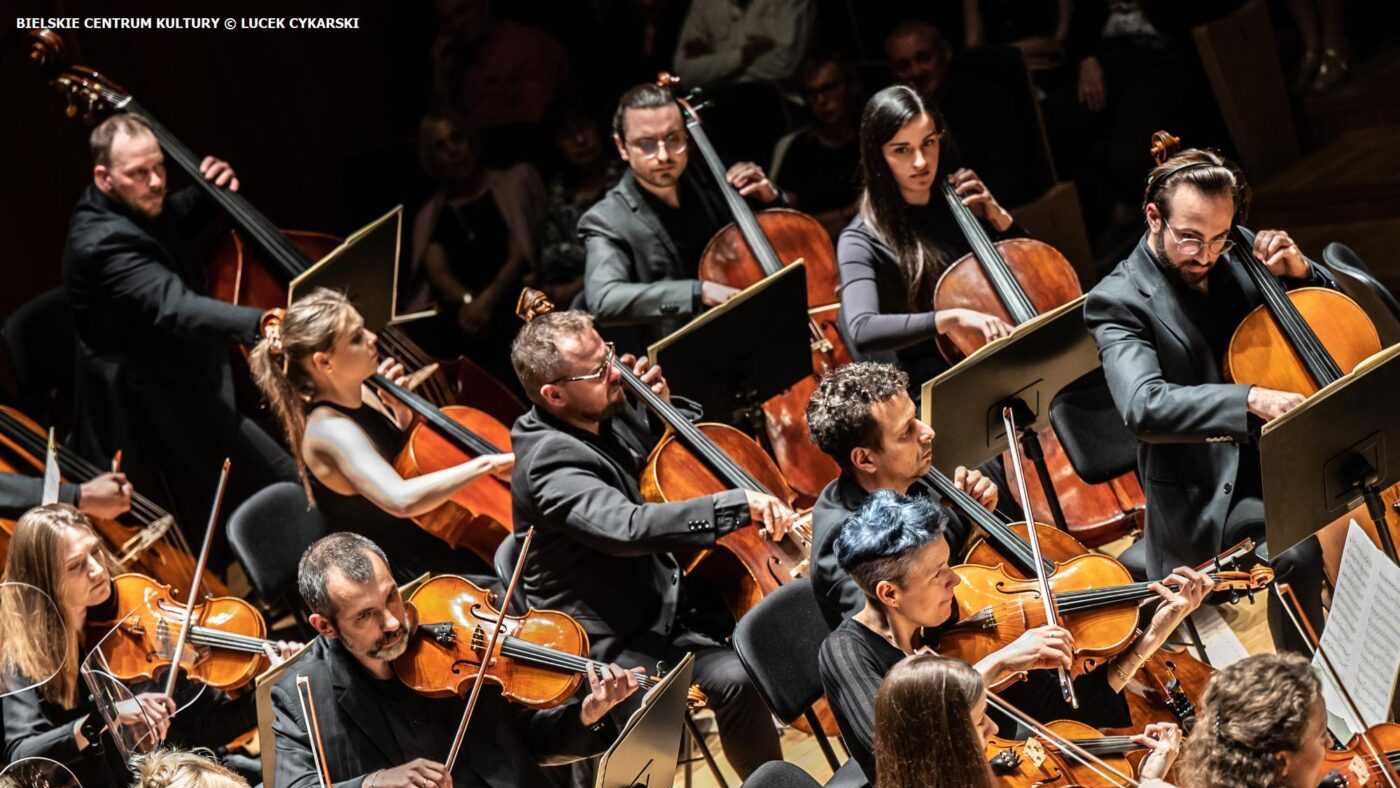
The Cavatina Philharmonic Orchestra from Bielsko-Biała has opened its doors to musicians with experience in various orchestras, styles, and genres. As Poland’s first private, professional philharmonic orchestra, it aspires to position itself at the vanguard of European music. We discuss these ambitious plans with the orchestra’s founders: Michał Dziuda, the benefactor and driving force behind the Fiducia Foundation; Andrzej Kucybała, an artist, manager, and distinguished conductor; and Jacek Stolarczyk and Jacek Obstarczyk, the project’s artistic directors.
You can find the first part of the debate about Cavatina Philharmonic Orchestra from Bielsko-Biała in Poland here, at Holistic News: Cavatina Philharmonic Orchestra from Bielsko-Biała in Poland Is Going to Make it Big (part 1)
Wojciech Wybranowski: How long must pass before the orchestra you’re creating develops its own sound?
Andrzej Kucybała: I worked on an orchestra’s own sound for about eight years, but that was with young people and students. With the people we’re hiring for Cavatina Philharmonic Orchestra, we can achieve this within two years. With full engagement from the musicians and the conductor, I believe our orchestra can attain its own musical style in just two years.
How does the recruitment process look? I read that you’ve already auditioned over 600 people. Who are you focusing on?
Jacek Obstarczyk: Technical skill, the perfect ability to play a given instrument is the absolute foundation, and only from that point can we talk about something more. What’s important is what Jacek mentioned a moment ago – openness. There are musicians who clearly want to specialize only in narrow, strictly defined currents, focusing very strongly only on so-called early music, meaning the Baroque period and earlier. There are musicians who discover that they’re only interested in contemporary music and will only play pieces by composers from the second half of the 20th century to modern times. For us, this is not an optimal approach.
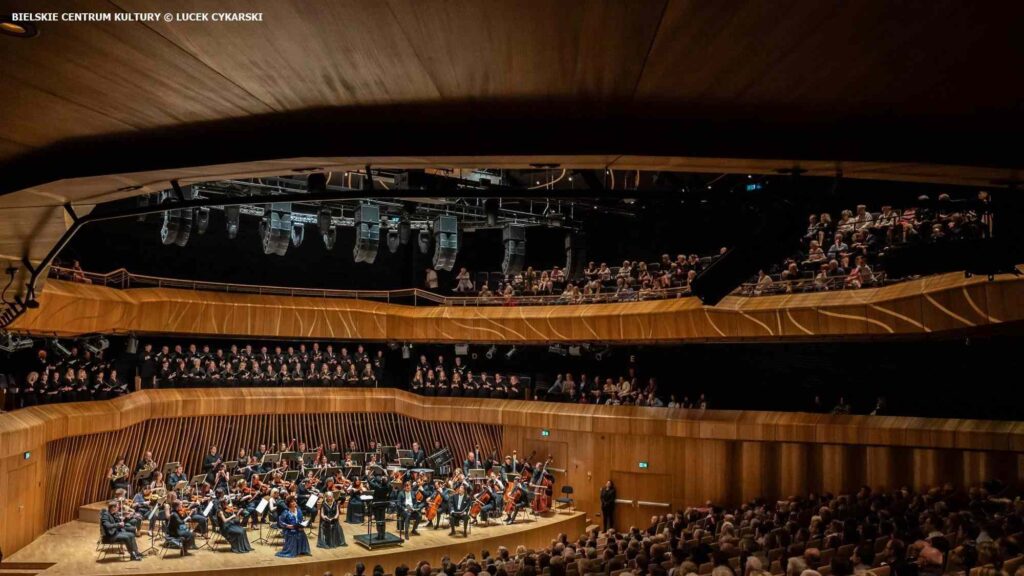
We’re looking for people with broad interests, with experience playing in different orchestras, with different styles and genres of music. It’s a very good phenomenon that when we audition young people, it often turns out that they’ve already had the opportunity to travel, stay in other countries, study, and participate in various projects there. It’s of great value that they have open minds, they’ve seen how people play in France, in the States, and how they play around the world. We’re looking for people who will want to explore different directions together with us.
Jacek Stolarczyk: Encounters with different cultures are often what Polish musicians playing classical music lack. In Poland, we’re strictly a European, Christian culture, but when going to the West, musicians often come into contact with other influences, for example, Middle Eastern culture. This is very important from the point of view of an artist, or a musician; they start to look more broadly, experiment, and seek new inspirations.
We recommend: Personal Relations and Instagram Are the Keys to Success: Craftsmanship in the Age of AI
Opening up to young people who aren’t afraid of musical experiments, and who want to seek an original style, sometimes at the intersection of different cultures, however, raises controversies in the music community. Especially among people considered authorities due to their age or position.
Jacek Obstarczyk: The orchestra we’re creating, a private, professional philharmonic orchestra, is a situation that hasn’t been encountered in Poland before, it causes consternation and surprise. Why? Private orchestras established earlier in Poland were project-based or focused solely on commerce. And now people are wondering and can’t wrap their heads around it – how is a philharmonic orchestra being created, which is at the same time private? How is this possible? And from this lack of understanding, from this surprise, a lot of strange rumors appear.
Jacek Stolarczyk: Today, most often the audition system in orchestras is such that it’s known who’s auditioning the candidates, who they’ll be playing, and it’s already known before the audition who they want to accept. People keep asking us too, “Who will be on the committee, will it be this person or that person?” This approach of “okay, so I’ll talk to this person and that person, and if this and that person are on the committee, they’ll take this or that person.” And so they gossip. And because in Cavatina Philharmonic Orchestra, the decision-maker is Stanley Dodds, an outsider who doesn’t know anyone here except us, he conducts auditions in an objective, impartial way.
Only sometimes does he ask us for our impression, if we know someone, but that’s obvious — an orchestra is a team of people who must be able to work together. We can’t allow situations that sometimes happen in projects, where for example, you get a great flutist who is in conflict with half the ensemble, doesn’t understand other artists, and behaves in a way that builds a negative, toxic atmosphere in a team.
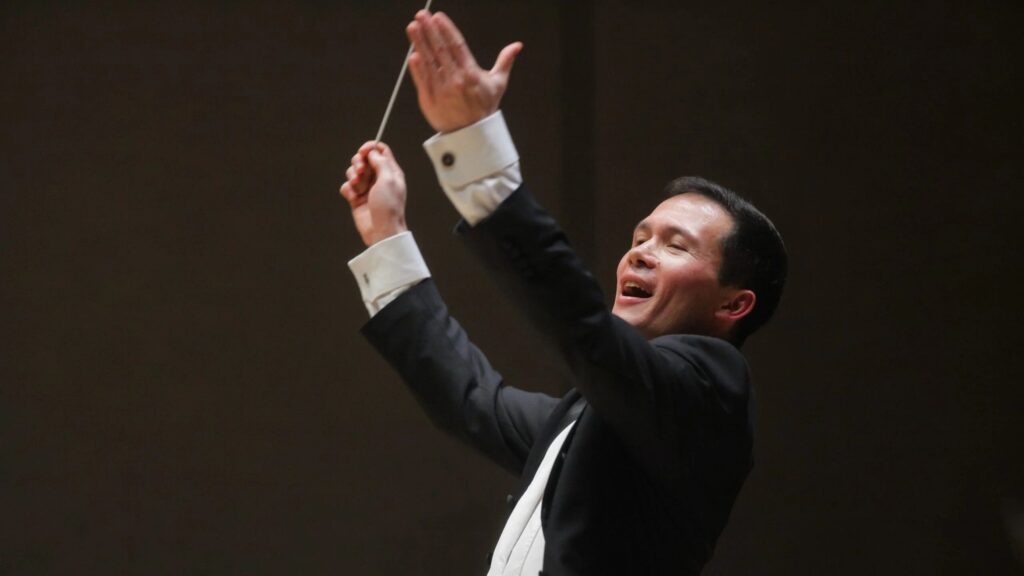
Are you trying to break a certain caste, a certain arrangement prevailing in the music community, where “you need to know someone to get a job”?
Jacek Stolarczyk: Or be appointed by the minister (laughs).
Jacek Obstarczyk: We’re moving towards the fact that since this is a private initiative, there aren’t and can’t be situations where some commissioner comes and says we have to hire this person and not hire another because he’s the right one and has the right connections. There are no such arrangements here, we’re not interested in them.
Jacek and I have worked together for many years before, and we’ve never been interested in such arrangements. In fact, we’re hearing for the first time that there’s such a situation, that it’s speculated that “someone is in this team, and someone else in that one,” and “if this person is there, that person can’t be.” Now we see that there are such environmental arrangements and little arrangements. This is an absurd situation that we don’t accept and which has no influence on the creation of our orchestra.
Jacek Stolarczyk: If we were still lecturers at one of the music universities, or if we worked in a public cultural institution, maybe someone could try to put pressure on us like “you know, my students…” or “we can cut your funding.” There’s no such platform here, there’s no such possibility because we work for the Fiducia Foundation. So we’re in a very comfortable situation.
Michał Dziuda: Perhaps we can draw a conclusion from this situation that the fact that there’s no Polish orchestra that would be more widely known in the world results precisely from this parochialism and local arrangements, which cause doors to sometimes be closed to real talents, there’s no such freedom for people who can organize themselves in completely new musical projects.
Such freedom takes place in popular music, and jazz, but doesn’t occur in the environment of classical, and symphonic music creators, and with our project, we’re opening doors for people wanting to create something new, something interesting, and remain outside any arrangements. This is also our chance.
Of course, today we don’t know yet if we’ll be able to fully take advantage of it, certainly there are many people who don’t wish us well, fearing that we might become better than them. Much depends on Stanley Dodds, whether he’ll rise to the challenge, and whether he’ll create a team that will go beyond the scheme and manage to create quality and a characteristic sound. Stanley is the equivalent of a football coach here, he arranges details and hires personalities who will feel good in the team.
I know this from my backyard, when hiring people at Cavatina, I hardly look at competencies at all, but – first and foremost – I’m interested in personality. It’s people with high-class personalities who bring significant value, they don’t have to compete with anyone because they are – and they’re aware of it – good in themselves. What needs to be done is to get them to gel. Of course, the ability to play an instrument in an orchestra must also be there (laughs).
We recommend: Evil in Culture: Why Do We Need Tales About the Dark Side of Man and the World?
What are the biggest challenges facing the Orchestra in the next two years?
Andrzej Kucybała: First and foremost, consolidating the ensemble. Remember that we’re bringing in people who have played in various orchestras and have different professional experiences – we need to learn how to work together. In a symphony orchestra, it must be “one for all, all for one.” We have an excellent professional in Stanley Dodds; in my opinion, he’s an outstanding musician who, most importantly, understands the orchestra.
Unfortunately, in Poland, we also have a situation that’s absolutely incomprehensible to me – a dysfunctional system of training conductors in Polish schools. We’re creating conductors who often don’t understand symphonic music. But how can you prepare a good conductor if they practice with piano accompaniment for four years? Later, when they stand in front of an orchestra, they simply become bewildered: they don’t understand the orchestra, its sound, its timbre. The education system in the West is completely different; there, from the first class, a conducting student participates in working with an orchestra. Here, everything is reduced to the conductor waving their arms nicely, to be elegant and punctual, while everything else is of secondary importance.
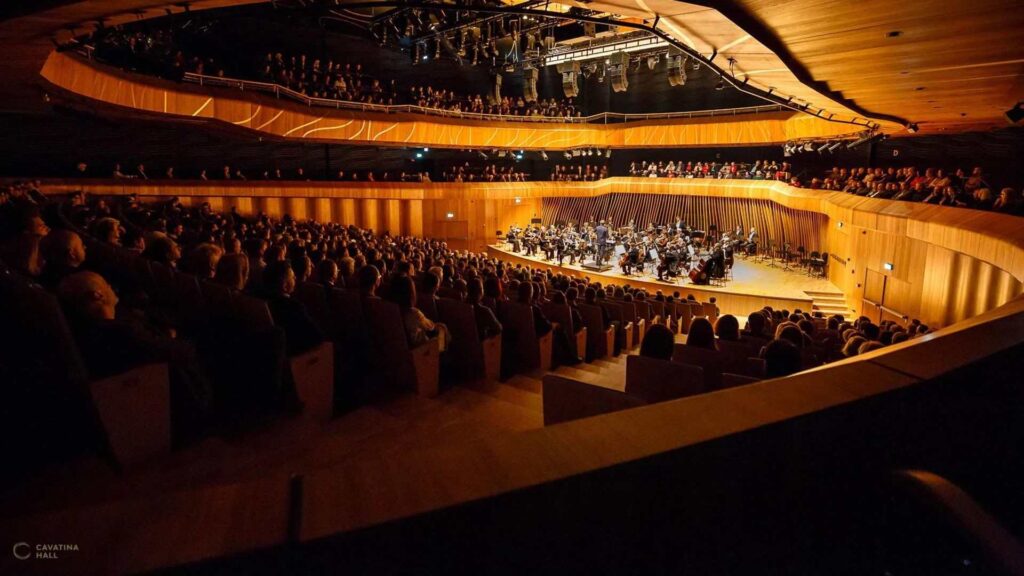
And what about the issue of talent and potential musical personalities in the young generation? Among those people who apply for your auditions, saying they’d like to perform with the Cavatina Philharmonic Orchestra, do you see Robert Lewandowski of Polish classical music in this generation?
Jacek Obstarczyk: It’s not that simple, because for someone to prove they’re such a virtuoso of Polish music, they first need to be tested. Lewandowski is Lewandowski because he’s proven his worth over several seasons in various clubs where he’s played. We’re also looking for people who have proven their worth in every project they’ve participated in. Even if they had a weaker day, they didn’t fall below a certain level.
The first year will be crucial for us because we’ll start in September with the orchestra and we’ll be constantly analyzing what’s good, and what could be better. And after this first season, it will be time for evaluations. Of course, we know musicians we can rely on blindly, those we’ve already seen always represent a high level, and if such a musician is properly guided, they can develop even further, and show a flash of genius.
Jacek Stolarczyk: We often move among people who have worked with us on previous projects and who came to play with us, even though the rates were sometimes what they were (laughs), because we always had a drive for development, to achieve something more, not to stand still, a drive for quality. They tell us themselves: “You want quality, so by playing with you, I feel that I’m becoming a better musician”.
The premiere is in September, the first concert, and then a European concert tour?
Jacek Stolarczyk: (laughs) I think that’s still too fast. Some time needs to pass before we gel together, and besides, preparing such a concert tour and contractors for cooperation takes time. If such proposals appear, we’ll take advantage of them. We’re thinking that we want to travel with the ensemble, that we want to show it off, that we want people to talk and write about it. However, first we need to develop the foundation of the ensemble and find our niche and program.
Michał Dziuda: First, we need to be sure that the quality is already at such a level that we can go and present ourselves well. It can be compared in a sense to qualifications; it may be that some manager will listen to how the Cavatina Philharmonic Orchestra plays and say: “I’d like you to play for us.” However, we wouldn’t want to give a concert without being certain that the level we present will be really high.
Until we’re at the highest level, we won’t start in this European league. And by the end of January, we’ll know whether it’s going in the right direction or if changes in the concept are needed.
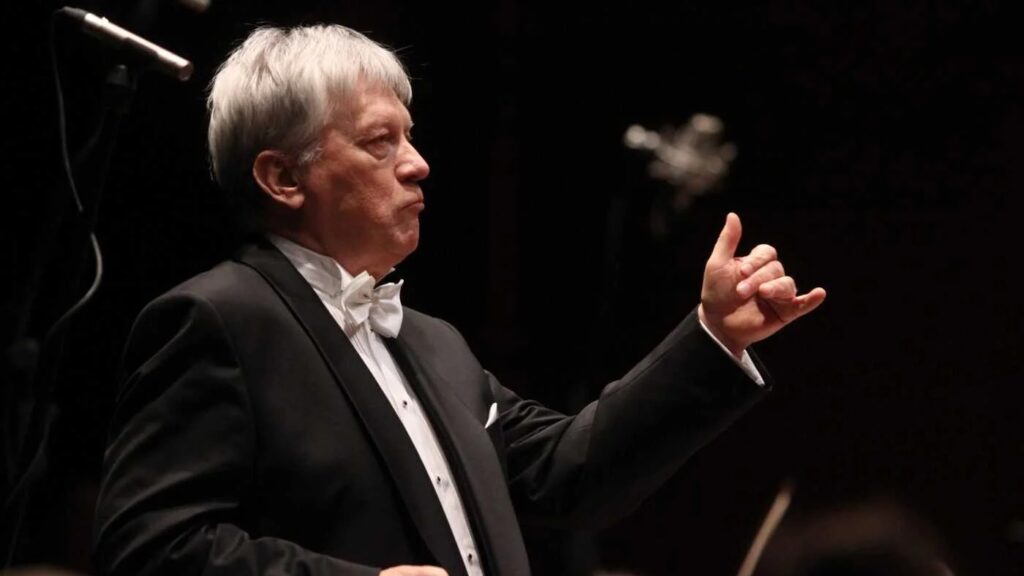
So, whether you’ll enter the world’s top league of orchestras…
Andrzej Kucybała: I believe in it and I’m 100% convinced that we’ll achieve it. There’s no other possibility. Stanley’s skills and the ambition of these young people will give us success. I observed young people who played in the Bielska Orkiestra Cavatina we established for a year. Do you know what distinguished them from people playing in other orchestras? Passion! There’s a motto by Beethoven:
You can make a mistake in the notes, I’ll forgive you that. But if you play without passion, that’s unforgivable.
We invite people to the ensemble when we see that they play with passion. These are the kind of people we need because it will translate into the quality of playing. Without passion, there is no music.
Translation: Klaudia Tarasiewicz
You can find the first part of the debate about Cavatina Philharmonic Orchestra from Bielsko-Biała in Poland here, at Holistic News: Cavatina Philharmonic Orchestra from Bielsko-Biała in Poland Is Going to Make it Big (part 1)
Polish version: Cavatina Philharmonic Orchestra: „Będziemy grać z pasją” (część 2)


Science
13 July 2025

Zmień tryb na ciemny